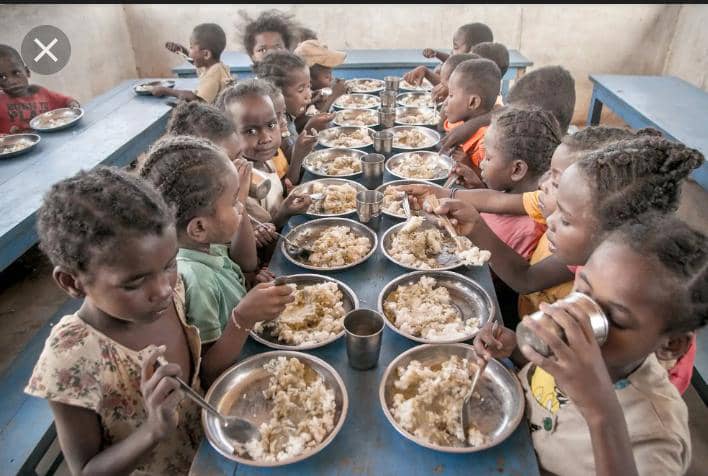Save the Children says over fifteen point six million children in Nigeria are facing hunger in the lead up to the lean season starting in June.
According to a new analysis by Save the Children, the number of hungry children is 25% higher than the same period in last year, and is likely the result of increasing insecurity, protracted conflict, banditry and rising food prices in the West African country.
The analysis of figures released by the Cadre Harmonisé – a regional framework to identify food and nutrition insecurity in the Sahel and West Africa – almost 32 million people in Nigeria, including 15.6 million children, will face crisis levels of hunger between June and August unless food and cash assistance is received.
While these months between harvests are when hunger typically peaks in Nigeria, a quarter more children are set to go hungry compared to last year.
This suggests that over 3.4 million additional children – on average 9,000 a day – have been plunged into hunger in the last year.
Violent killings, attacks and kidnappings by non-state armed groups and bandits in the country’s north have affected food production, disrupted local markets and caused farmers to flee their farms.
According to the Association of Nigerian Farmers, so far this year at least 165 farmers across Nigeria have been killed, mostly in Benue in the country’s north-central region which the UN has said is an emerging hotspot for farmer and herder conflict.
Save the Children’s Country Director for Nigeria Duncan Harvey said: “An already dire hunger situation in the country is gradually going from bad to worse as violence, insecurity and rising prices combine to leave over 15 million children hungry in Nigeria.
Hunger exists nationwide, but the situation in the north where violence is rife is particularly dire. In Borno, Yobe, Katsina and Zamfara, one in three children do not know where their next meal will come from.
Children in Nigeria – who make up one of the largest child populations in the world – have already endured far too much, as millions face conflict, violence and exploitation.
This year, one in six children will go hungry – an increase from last year. Urgent action must be taken to prioritise the needs of children to stop this devastating trend and protect innocent lives. If not, armed groups will continue to carry out brutal attacks, drive up food prices, and push more families to starvation.”
Under the IPC scale, Phase 3 is a crisis, Phase 4 is an emergency, and Phase 5 is used for when the situation is reaching famine-like conditions — the worst scenario categorised by starvation, death, and extremely critical acute malnutrition levels.
At least 490,000 children – mostly in Borno and Katsina – are expected to face catastrophic levels of hunger (classed as IPC4). Hunger has risen sharply in Nigeria in recent years, up from about 7% of the population analysed by the UN in 2020 to 15% currently [4].
Bula Saidu (aged 12) lives in Konduga in Borno with his parents and siblings and is the second youngest of twelve children. Bula said: “Eating is very difficult in my house.
We eat once daily – I cannot remember the last time we had three square meals. After eating once, I grow so hungry, but there is no food to eat… I feel so weak and sick most times.”
Save the Children is calling upon governments in Nigeria at local, state and national levels to focus on transforming food production and distribution and to incentivise farmers to grow crops that are resistant to climate change.
Globally, world leaders must address the root causes of acute food and nutrition insecurity.
Only by putting an end to global conflict, by tackling the climate crisis and global inequality, and by building more resilient health, nutrition, and protection systems that are less vulnerable to shocks like conflicts and the climate crisis, will we be able to ensure the same warnings are not ringing out again in the coming years.
Save the Children is also calling for greater collaboration between governments, development and humanitarian organisations, climate groups, and the private sector. Children and other community members need to be able to have their say in these discussions.
No sector or intervention alone can respond to the many causes and vulnerabilities leading to food and nutrition insecurity, but combined, the impact will be more effective, efficient and at scale.
Save the Children has been working in Nigeria since 2001 and has been responding to the humanitarian crisis in the northeast since 2014.
It is also providing food, clean water, nutrition and protection services, sexual and reproductive health care, and education to families across Nigeria.
Save the Children provides technical support to the government on policy changes and reforms, especially in critical sectors such as health, education, and social protection.
Rel. Adamu Yusuf
